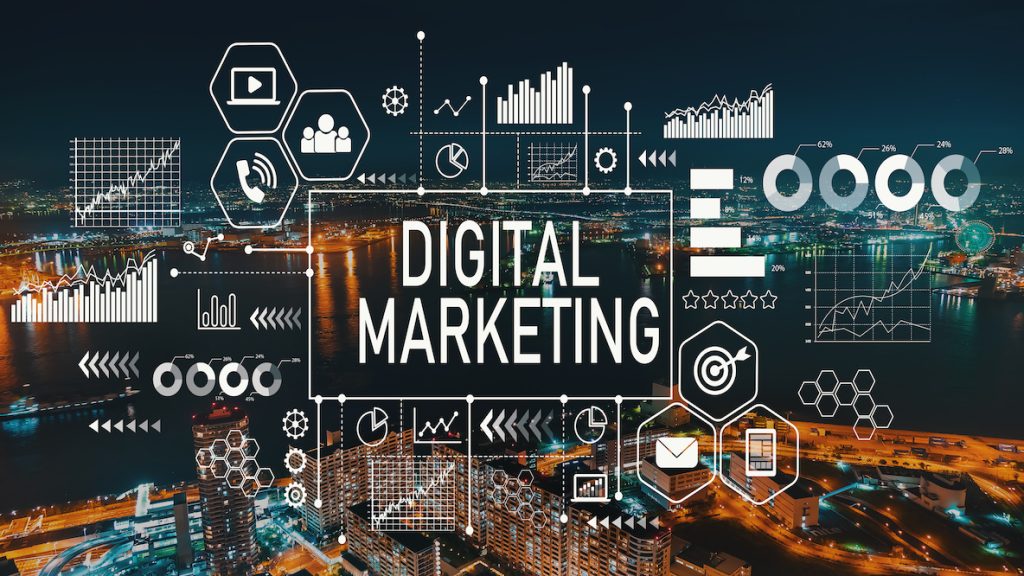Personalization in digital marketing is becoming increasingly important as consumers expect a personalized experience when engaging with brands. Digital marketing today is no longer just about selling, but more about creating meaningful relationships with customers. Consumers want to be recognized and valued as individuals, and personalization is the key to achieving this.
In this article, we will discuss what personalization is, why it is so important in digital marketing, how to implement it in your campaigns, and examples of brands using personalization.
What is Personalization?
Personalization is the act of customizing your message, services, and products to meet the individual needs of each customer. This is done by creating a unique experience for each customer based on their past interactions with your brand, their interests, and their preferences. By providing an experience tailored to each customer, personalization helps create a connection and build trust with your customers.
Personalization goes beyond just addressing someone by their name in an email, or including their purchase history in a personalized message. It’s about creating an experience that is tailored to the individual customer. This is done by using data to understand each customer’s interests, preferences, and past behaviors, and then leveraging that information to create a unique, personal experience.
Personalization can be used in a variety of ways, from customizing content in emails to providing recommendations based on past purchases, to offering personalized discounts and promotions. By using data to understand each customer’s preferences and interests, you can create a personalized experience that will make them feel valued and appreciated.

Why is Personalization Important in Digital Marketing?
Personalization has become an essential part of digital marketing, as it allows businesses to create more tailored experiences for their customers. There are several reasons why personalization is so important in digital marketing.
First, personalization helps to create a more engaging customer experience. With personalization, businesses can create experiences tailored to an individual customer’s needs and preferences.
This helps to make the customer feel valued, as they know the company cares about their unique needs. In addition, personalization can lead to higher engagement and conversion rates, as customers are more likely to take action when they feel like they are truly being heard.
Second, personalization enables businesses to build stronger relationships with their customers. By creating personalized experiences, businesses can build trust and loyalty with their customers.
Customers are more likely to stay engaged with a brand if they feel like their needs are being taken into consideration. Additionally, personalization can help businesses stand out from their competitors, as customers are more likely to remember experiences that are tailored to their individual needs.
Third, personalization helps businesses to better understand their customers. By collecting data about their customers, businesses can learn more about their preferences and needs, which can help them create more effective campaigns.
Additionally, personalization can help businesses better segment their customers, allowing them to create more targeted campaigns and messages.
Overall, personalization is an essential part of digital marketing, as it helps businesses to create more engaging experiences for their customers, build strong relationships, and better understand their customer base. In the next section, we will discuss how to implement personalization in digital marketing.
How to Implement Personalization in Digital Marketing
Personalization in digital marketing can be implemented in various ways. One of the simplest and most effective methods is using targeted emails. By segmenting a customer database and using targeted emails, businesses can send out tailored messages to their customers.
Moreover, the use of personalization tags can help to customize emails even further. These tags enable businesses to insert customers’ names and other details such as their purchase history into emails. This ensures customers feel like they are being addressed personally and can help to improve customer engagement.
Another way to implement personalization is by using dynamic content on webpages. This allows businesses to display different content depending on the customer’s location, device and past interactions.
For example, if a customer has purchased a product from a website before, they may be shown a related product the next time they visit the website. This helps to create a personalized experience for customers and can increase their likelihood of making a purchase.
Additionally, businesses can use personalization in their social media campaigns. By leveraging customer data, businesses can tailor their content to the right audience. This can help to improve the effectiveness of social media campaigns, as well as increasing customer engagement.
Lastly, businesses can use personalization techniques such as retargeting to deliver ads to customers based on their past interactions with a business.

Examples of Brands Using Personalization
When it comes to personalization, the best way to learn is to look at what other companies are doing. There are many brands that have successfully implemented personalization in their digital marketing strategy and have seen positive results.
Krispy Kreme is a perfect example of a company that has used personalization to build relationships with its customers. They have a loyalty program that allows customers to earn points for every purchase they make.
With the points, customers can redeem exclusive offers, discounts, and free products. As a result, customers feel appreciated and valued for their loyalty, creating a positive connection with the brand.
McDonald’s has also implemented personalization in their digital marketing strategy. They have an app that allows customers to save their favorite orders and receive tailored offers based on their preferences. This allows customers to save time when ordering and also encourages them to come back and order more.
Sephora has also used personalization in its digital marketing. They offer personalized beauty boxes to their customers. These boxes contain products that are tailored to each customer’s skin type, age, and preferences. This allows customers to try new products and get a personalized experience.
Amazon is another great example of personalization in digital marketing. They use data to personalize product recommendations, emails, and ads. This helps customers find exactly what they’re looking for and also encourages them to come back and make more purchases.
All of these examples demonstrate how powerful personalization can be in digital marketing. By creating a personalized experience for customers, brands can create stronger relationships with them and encourage them to keep coming back.
Why is Personalization in Digital Marketing Important?
Personalization is an essential component of any successful digital marketing strategy. By leveraging data and utilizing tools that can customize content and experiences, businesses can increase customer engagement and loyalty while providing a more personalized online experience.





